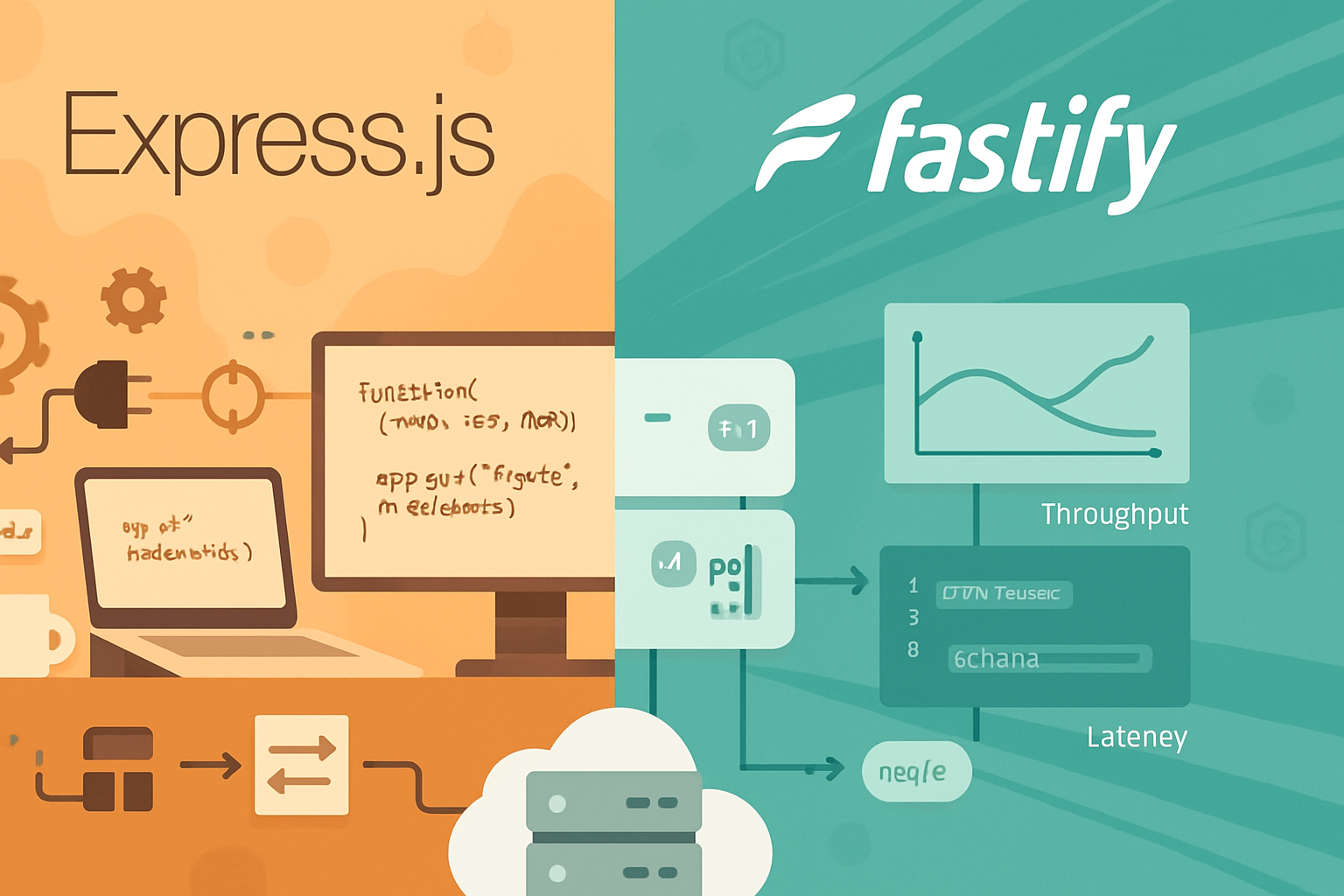· 7 min read
Unlocking TypeScript's Full Potential: Hacks for Advanced Developers
Practical advanced TypeScript patterns and 'hacks' for seasoned developers: deep generics, type-level programming, decorators for typed DI and metadata, variadic tuples, template literal types, and more.
Introduction
Seasoned developers know TypeScript isn’t just a safer JavaScript - it’s a powerful type system you can bend to solve complex problems at compile time. This article focuses on practical advanced “hacks”: patterns that combine generics, conditional and mapped types, variadic tuples, template literal types, and decorators to produce safer and more expressive code in large codebases.
Key references
- TypeScript Handbook - Generics: https://www.typescriptlang.org/docs/handbook/generics.html
- Advanced Types: https://www.typescriptlang.org/docs/handbook/2/advanced-types.html
- Utility Types: https://www.typescriptlang.org/docs/handbook/utility-types.html
- Decorators (experimental): https://www.typescriptlang.org/docs/handbook/decorators.html
- reflect-metadata (runtime metadata helper): https://github.com/rbuckton/reflect-metadata
- zod (runtime validation, useful with TS types): https://github.com/colinhacks/zod
- Advanced generics: push type inference further
a) Deep path get/set (typed nested access)
Problem: access deeply nested properties with fully checked keys.
Solution: model the allowed paths as a tuple of keys and infer return types.
type Path<T> = T extends object
? { [K in keyof T]: [K] | [K, ...Path<T[K]>] }[keyof T]
: never;
type PathValue<T, P extends readonly any[]> = P extends [infer K, ...infer Rest]
? K extends keyof T
? Rest extends []
? T[K]
: PathValue<T[K], Rest>
: never
: T;
function getAt<T, P extends Path<T>>(obj: T, ...path: P): PathValue<T, P> {
// runtime implementation is simple; types above keep this call-safe
return path.reduce<any>((o, k) => (o == null ? undefined : o[k]), obj);
}
// Usage
type Data = { user: { profile: { name: string; age: number } } };
const d: Data = { user: { profile: { name: 'Alex', age: 30 } } };
const name = getAt(d, 'user', 'profile', 'name'); // inferred stringNotes: Path and PathValue combine mapped types, recursive conditional types, and tuple inference. This pattern gives ergonomics similar to lodash’s get but statically typed.
b) Currying and variadic tuple types
TS 4.x introduced variadic tuples. You can type-safe curry with them:
type Curry<F> = F extends (...args: infer Args) => infer R
? Args extends [infer A, ...infer Rest]
? (a: A) => Curry<(...args: Rest) => R>
: R
: never;
function curry<F extends (...args: any[]) => any>(fn: F): Curry<F> {
return function curried(this: any, arg: any) {
if (fn.length <= 1) return fn(arg);
const partial = fn.bind(this, arg);
return curry(partial as any);
} as any;
}
// Example
const add = (a: number, b: number, c: number) => a + b + c;
const cadd = curry(add);
const step1 = cadd(1); // step1 is a function expecting (b: number) => ...This uses tuple inference to peel off the head of the args tuple recursively.
- Type-level programming: make the compiler check domain logic
a) Distributive conditional types & unions
Use distributive conditional types to map over unions in a controlled way.
type ToArray<T> = T extends any ? T[] : never;
type U = ToArray<'a' | 'b'>; // 'a'[] | 'b'[]b) Brand / opaque types
Create nominal types to prevent accidental mixing of primitives.
type Brand<K, T> = K & { __brand: T };
type UserId = Brand<string, 'UserId'>;
const toUserId = (s: string) => s as UserId;
function loadUser(id: UserId) {}
loadUser(toUserId('abc')); // safe
// loadUser('abc'); // compile-time errorc) Template literal types for domain-safe strings
Build strongly typed route keys, event names, or CSS class patterns.
type Entity = 'user' | 'product';
type Action = 'create' | 'delete' | 'update';
type Route = `/${Entity}/${Action}`;
const r: Route = '/user/create';
// const bad: Route = '/order/create'; // error- Decorators beyond sugar: typed DI and runtime metadata
Decorators are experimental but enable powerful patterns when combined with metadata.
a) Simple typed DI container with decorators
We use reflect-metadata to retain runtime design:type metadata. Enable compiler options: “experimentalDecorators”: true, “emitDecoratorMetadata”: true.
import 'reflect-metadata';
const INJECTABLES = new Map<Function, any>();
function Injectable() {
return function <T extends { new (...args: any[]): {} }>(ctor: T) {
INJECTABLES.set(ctor, new ctor());
};
}
function Inject<T>(token: new (...args: any[]) => T) {
return function (target: any, _propKey: string | symbol, index?: number) {
// We could store info to inject on construction
const paramTypes = Reflect.getMetadata('design:paramtypes', target) || [];
// This example is illustrative; in real apps, you wire in a container
};
}
@Injectable()
class Logger {
log(msg: string) {
console.log(msg);
}
}
@Injectable()
class Service {
constructor(public logger: Logger) {}
}
// Retrieve:
const svc = INJECTABLES.get(Service) as Service;
svc.logger.log('hello');Better patterns use a container that resolves constructor parameters by reading reflect metadata. The key idea: combine decorators with metadata to preserve typing between compile time and runtime.
b) Method decorators: runtime validation with type hints
By decorating methods and pairing with runtime validators (zod, io-ts), you can keep runtime checks close to type-level intent:
import { z } from 'zod';
function validate(schema: z.ZodTypeAny) {
return function (
_target: any,
_prop: string,
descriptor: PropertyDescriptor
) {
const orig = descriptor.value;
descriptor.value = function (...args: any[]) {
schema.parse(args[0]); // throw if invalid
return orig.apply(this, args);
};
};
}
const userSchema = z.object({ id: z.string(), name: z.string() });
class C {
@validate(userSchema)
save(user: z.infer<typeof userSchema>) {
// now both runtime and compile-time expectations align
}
}- Practical type utilities and patterns
a) DeepReadonly / DeepPartial - recursive mapped types
type DeepReadonly<T> = T extends Function
? T
: T extends object
? { readonly [K in keyof T]: DeepReadonly<T[K]> }
: T;
type DeepPartial<T> = T extends Function
? T
: T extends object
? { [K in keyof T]?: DeepPartial<T[K]> }
: T;b) Pick/Exclude by value type
Useful to pick properties whose values match a condition.
type PickByValue<T, Value> = {
[K in keyof T as T[K] extends Value ? K : never]: T[K];
};
type Example = { a: string; b: number; c: string };
type OnlyStrings = PickByValue<Example, string>; // { a: string; c: string }c) Type-safe event emitter
Combine mapped types and generics to guarantee handlers match event payloads.
type Events = {
login: { userId: string };
logout: { userId: string; when: Date };
};
class Emitter<E extends Record<string, any>> {
private handlers: Partial<{ [K in keyof E]: ((payload: E[K]) => void)[] }> =
{};
on<K extends keyof E>(k: K, h: (p: E[K]) => void) {
(this.handlers[k] ??= []).push(h);
}
emit<K extends keyof E>(k: K, p: E[K]) {
(this.handlers[k] || []).forEach(h => h(p));
}
}
const e = new Emitter<Events>();
e.on('login', p => p.userId); // typed
// e.on('login', p => p.foo); // error- Compiler and project tips
- Enable strict flags: strict, noImplicitAny, strictNullChecks. They unlock more powerful type-checking.
- Use “emitDecoratorMetadata” + “experimentalDecorators” only if you need runtime design metadata.
- Use “skipLibCheck” in huge monorepos only when necessary - typing libraries helps the compiler help you.
- Use incremental compilation and project references for massive codebases.
- Bridging runtime and compile-time: validation and codegen
No matter how advanced the type tricks, runtime validation is essential for untrusted input. Use runtime validation libraries such as zod or [io-ts] to assert runtime shape and then narrow types. You can also generate runtime schemas from types (or vice versa) via tools - but keep one source-of-truth.
- Patterns for large codebases
a) Declaration merging for augmentation
Declaration merging is handy when adding properties to third-party types (e.g., extending Express Request):
// in global.d.ts
import 'express';
declare module 'express' {
export interface Request {
user?: { id: string };
}
}b) Centralized type utility library
Collect commonly used advanced type utilities (DeepPartial, Merge, Mutable, Brand) to keep your team consistent.
- Small but powerful syntax hacks
- as const: preserve literal types from arrays/objects.
- satisfies (TS 4.9): check an expression satisfies a type without widening it.
const config = {
host: 'localhost',
port: 8080,
} as const;
const routes = {
home: '/home',
} satisfies Record<string, string>;- const assertions + satisfies let you keep literal types while ensuring shape conformance.
- Debugging complex types
- Create helper aliases to inspect types in editors: type Debug
= T extends infer U ? U : never; then hover U. - Make small reproducible examples in the playground (https://www.typescriptlang.org/play) or use ts-node with isolated files.
- When to stop: avoid over-typing
Type gymnastics are powerful, but they come with complexity costs. If a type becomes more expensive to maintain than it prevents bugs, simplify. Prefer runtime checks and clear, minimal types for boundaries that face the outside world.
Further reading
- TypeScript Handbook (Generics, Advanced Types, Utility Types, Decorators) - links above.
- reflect-metadata: https://github.com/rbuckton/reflect-metadata
- zod (runtime validation): https://github.com/colinhacks/zod
Conclusion
TypeScript’s advanced features let you move many invariants from runtime to compile time. Use recursive mapped types, distributive conditional types, variadic tuples, template literal types, and decorators judiciously to create safer, more expressive APIs. Combine compile-time guarantees with pragmatic runtime validation, and prefer readability over cleverness when collaborating in large teams.


